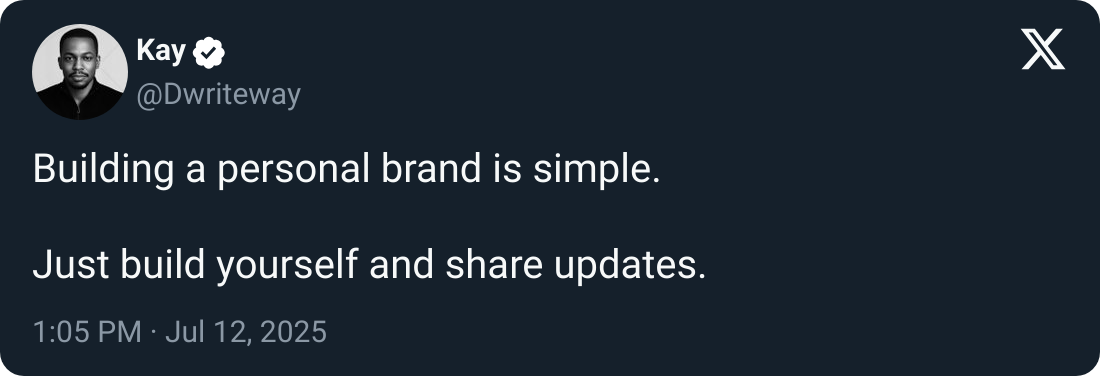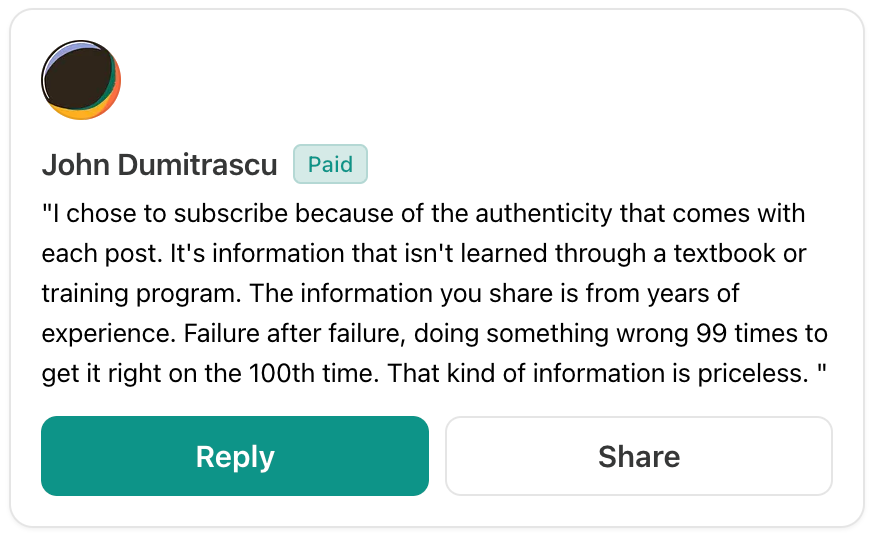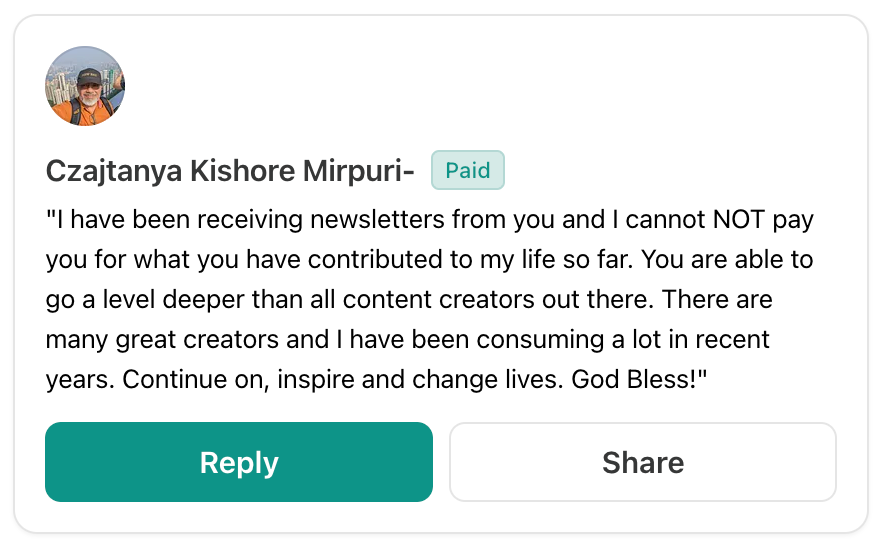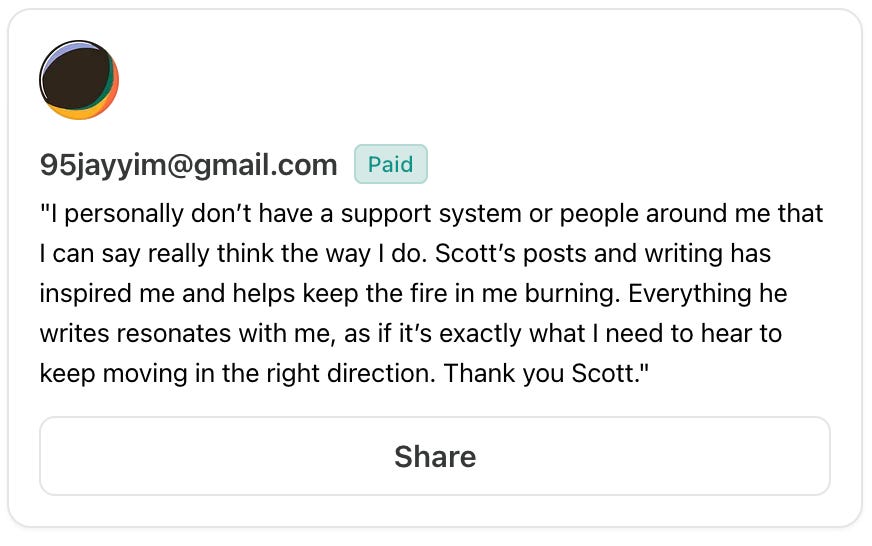Thoughts of the Week: August 4th, 2025
Real advice is expensive to give and expensive to receive.
You’ve read the free edition of Scott’s Newsletter. For more insights, including weekly deep dives, powerful ideas & proven strategies from my work with some of the world's most successful people, click here to become a paid subscriber.
You're Not Starting Over, You're Starting Ahead
Everyone thinks "it's never too late" means erasing your past and beginning fresh.
That's exactly backwards.
The most successful late starters don't reinvent themselves. They finally start using what they already are.
The clean slate delusion
Watch someone decide to "transform their life" at 40.
First thing they do? Pretend the last 40 years didn't happen. New career that ignores their experience. New identity that dismisses their history. New goals that abandon their assets.
They think starting over means starting from zero.
That's not transformation. That's waste.
Your past is your unfair advantage
The 45-year-old entering tech isn't competing with 22-year-olds. They're bringing 20 years of understanding human problems that code can solve.
The empty nester starting a business isn't behind. They have two decades of project management from raising humans.
But we throw it all away because we think "new beginning" means "blank slate."
The compound interest of experience
Young people have energy and time. You have pattern recognition and perspective.
They're still learning lessons you've already integrated. They're making mistakes you've already survived. They're building networks you've already cultivated.
Starting late isn't a disadvantage if you stop pretending you're starting from scratch.
The integration imperative
Real reinvention isn't replacement. It's integration.
Take everything you've learned being who you were. Apply it to becoming who you're next. Your "failed" career taught you skills. Your "wasted" decade gave you perspective. Your "mistakes" became wisdom.
The people who successfully change their lives don't abandon their past. They alchemize it.
The permission paradox
Here's why most people fail at late-life changes:
They're waiting to feel like beginners before they begin. They want the clean emotional slate to match their clean start narrative.
But you're not a beginner. You're an expert at being human who's applying that expertise to something new.
The experience arbitrage
A 25-year-old writer has energy and ambition. A 50-year-old writer has lived through betrayal, loss, triumph, and transformation.
Guess whose stories matter more?
The market rewards experience, but only if you stop apologizing for having it.
The false binary
We think it's either:
Too late (give up)
Never too late (start from zero)
But there's a third option: It's the perfect time to start from where you actually are.
With all your scars. All your skills. All your strange, specific knowledge that makes you unmarketable until it makes you irreplaceable.
The liberation of late
Starting young means following paths. Starting late means creating them.
You already know what doesn't work. You've already failed at being everyone else. You've already discovered what actually matters versus what's supposed to.
That's not baggage. That's intelligence.
The reframe
Stop saying "it's never too late to start over."
Start saying "it's never too late to finally use what you've got."
One requires you to become someone new. The other requires you to finally become yourself.
Which one sounds harder? Which one sounds more powerful?
The integration equation
Your new life = Your old wisdom + Your new direction
Not: Your new life = Pretending you're 20 + Competing with people who actually are
The most successful late bloomers don't bloom late. They just finally plant themselves in the right soil.
Important Ideas
This explains why some retired people feel more tired than when they worked full-time. It's not the hours that kill you. It's doing stuff that doesn't matter. I've seen people work 80-hour weeks on their own business and feel alive, then burn out after 40 hours at a job where they're just moving numbers around spreadsheets that no one reads.
The smartest person in the room is usually the one who hasn't shipped anything yet. They're still "researching" while someone else already launched three versions and learned what actually works. Your first attempt will suck anyway. You might as well suck in public and learn faster than the person still perfecting their business plan.
Notice how the most successful people rarely get mad about traffic or bad service? They save their anger for things they can actually change. Getting pissed about small stuff is like screaming at the rain. It just makes you wet and angry. The question isn't what makes you mad, but what you do about it.
Everyone wants to be an influencer before they have anything to influence people about. You can't document a journey you're not taking. The best personal brands happen by accident when someone gets so good at something that people start asking how they did it. Focus on getting good first. The audience shows up for excellence, not effort.








